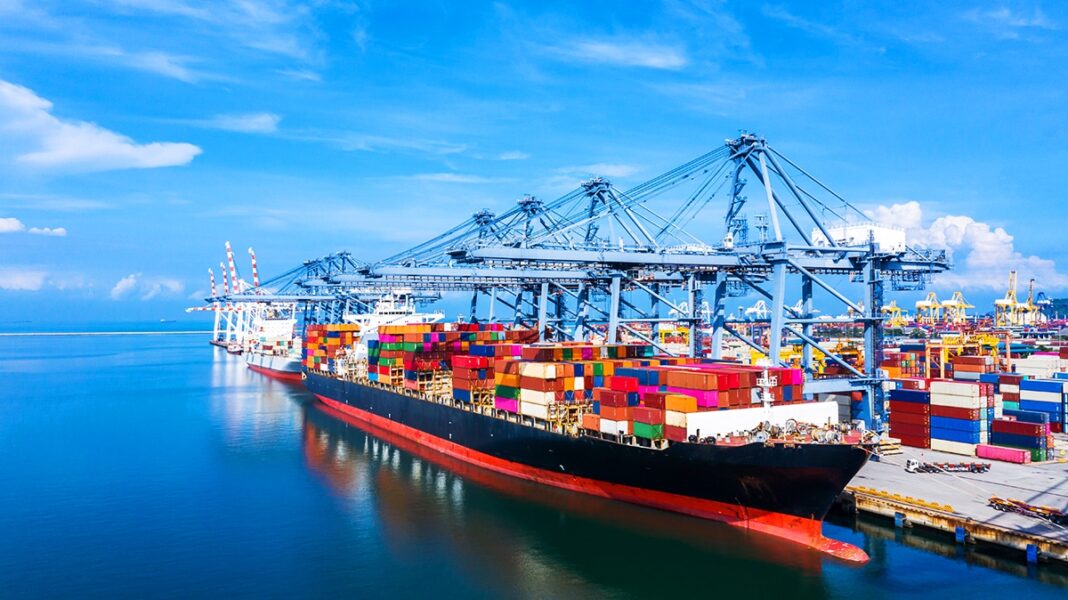In today’s interconnected world, international trade has become increasingly vital for economic growth and development. The exchange of goods and services between nations has the power to revolutionize economies and reshape the global landscape. However, to fully harness the potential of foreign trade, it is essential to understand the various aspects that influence it, from trade policies to technological advancements. This article explores the role of international trade in revolutionizing global exchanges, providing insightful analysis and shedding light on key considerations.
The Benefits of International Trade
International trade brings numerous benefits to participating countries. It allows nations to specialize in producing goods and services where they have a comparative advantage, leading to increased efficiency and productivity. This specialization leads to economies of scale, enabling countries to produce goods at lower costs and to export them competitively.
Foreign trade also contributes to economic growth and job creation. By providing access to larger markets, countries can increase their sales potential and expand their businesses. The inflow of foreign investments and technologies further enhances productivity and innovation, leading to a virtuous cycle of economic development.
Global Market Connectivity
The advent of globalization and advancements in communication and transportation technology have significantly transformed global exchanges. Today, it is easier than ever for businesses to connect with customers and suppliers around the world. The internet, e-commerce platforms, and digital payment systems have revolutionized the way international trade is conducted.
This global market connectivity has empowered small and medium-sized enterprises (SMEs) to participate in foreign trade. Previously limited by their scale and resources, SMEs can now access global markets and compete with larger corporations. This trend has led to increased competitiveness and diversity within international trade.
Trade Policies and Agreements
Trade policies and agreements play a crucial role in revolutionizing global exchanges. Governments use these policies to regulate and promote foreign trade. By reducing barriers such as tariffs and import quotas, countries can encourage international trade and attract foreign investments.
Regional and bilateral trade agreements have also become popular tools for boosting international trade. Agreements like the North American Free Trade Agreement (NAFTA), the European Union (EU), and the Comprehensive and Progressive Agreement for Trans-Pacific Partnership (CPTPP) provide a framework for countries to reduce trade barriers, harmonize regulations, and promote economic cooperation.
However, it is essential to strike a balance between liberalization and protectionism. While free trade can bring significant benefits, it also poses challenges, such as job displacement and increased income inequality. Governments must carefully analyze and implement trade policies that prioritize the welfare of their citizens while still promoting international trade.
Technological Advancements
Technological advancements have emerged as a powerful force in revolutionizing global exchanges. Automation, artificial intelligence, and robotics have transformed production processes and supply chains. These advancements have enabled businesses to increase efficiency, reduce costs, and expand their reach in international markets.
E-commerce platforms and digital marketplaces have also played a vital role in making foreign trade more accessible. Businesses can now connect with customers worldwide without the need for a physical presence. Small businesses have the opportunity to compete on a global scale, reaching a larger customer base and fueling economic growth.
Additionally, blockchain technology has the potential to revolutionize global exchanges by enhancing transparency, reducing transaction costs, and mitigating counterparty risks. By enabling secure and efficient record-keeping, blockchain can streamline international trade processes, boost trust, and facilitate greater participation in foreign trade.
Important Considerations for Foreign Trade
While foreign trade offers immense potential for economic growth and development, it is crucial to consider certain factors to ensure its sustainability and effectiveness:
Environmental Impact
International trade can contribute to environmental degradation through increased carbon emissions and resource depletion. Governments and businesses must prioritize sustainable practices and incorporate environmental considerations into trade policies. Promoting green technologies and supporting environmentally-friendly initiatives can help mitigate the negative impact of foreign trade on the planet.
Social Implications
Foreign trade can have significant social implications, including job displacement and income inequality. Governments and organizations must prioritize the welfare of their citizens by implementing social safety nets, providing retraining opportunities, and supporting affected communities. Fair trade practices and labor rights protections are also essential for fostering inclusive and sustainable globalization.
Balanced Economic Development
Global exchanges should aim to promote balanced economic development across regions. Ensuring that the benefits of international trade reach all segments of society can help prevent unequal distribution of wealth and foster social cohesion. Promoting trade diversification and encouraging investment in disadvantaged regions can contribute to sustainable and inclusive growth.
Summary
International trade has the power to revolutionize global exchanges and reshape economies. Through specialization, economic growth, and job creation, foreign trade brings numerous benefits to participating countries. Technological advancements and trade policies play a crucial role in enabling and facilitating global exchanges. However, it is essential to consider the environmental, social, and economic implications to ensure that foreign trade promotes sustainable and inclusive development. By harnessing the power of international trade, nations can unlock new opportunities and build a more interconnected and prosperous global economy.
- Unleashing the Power of Progress: Crafting an Astounding Growth Strategy - 17 de agosto de 2023
- Evolution Unleashed: Unlocking the Power of Iteration - 17 de agosto de 2023
- Unleashing Unlimited Potential: The Power of Scalability - 17 de agosto de 2023




